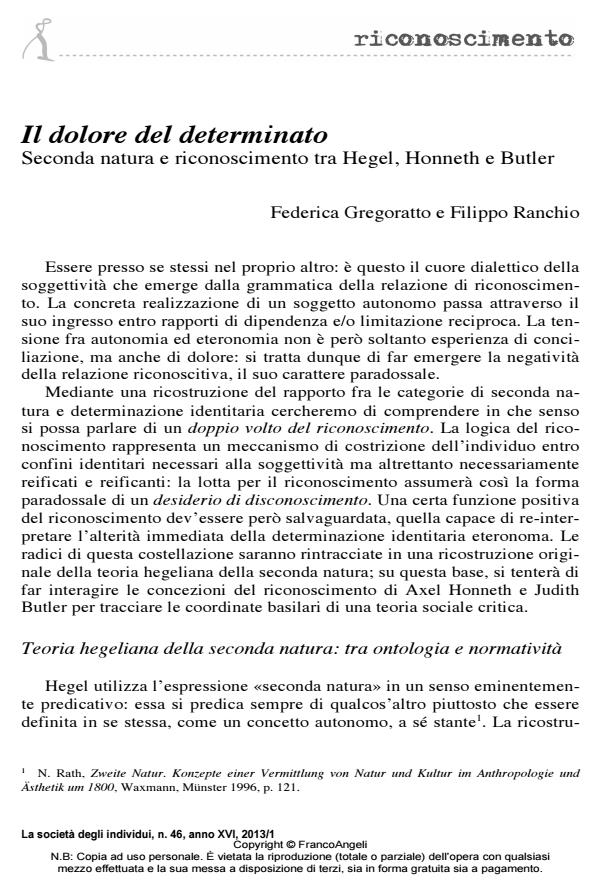The pain of determined. Second nature and recognition among Hegel, Honneth and Butler
Journal title SOCIETÀ DEGLI INDIVIDUI (LA)
Author/s Federica Gregoratto, Filippo Ranchio
Publishing Year 2013 Issue 2013/46
Language Italian Pages 14 P. 155-168 File size 170 KB
DOI 10.3280/LAS2013-046011
DOI is like a bar code for intellectual property: to have more infomation
click here
Below, you can see the article first page
If you want to buy this article in PDF format, you can do it, following the instructions to buy download credits

FrancoAngeli is member of Publishers International Linking Association, Inc (PILA), a not-for-profit association which run the CrossRef service enabling links to and from online scholarly content.
This paper aims at briefly reconstructing Hegel’s theory of «second nature» in both its ontological and normative dimension, and at figuring out how the logic of intersubjective recognition can be interpreted within this framework. Such a constellation will be furthermore investigated referring to Honneth’s and Butler’s paradigms. The interaction between the «normative» dimension of the first and the «anormative» strategy of the second shows the double-track structure of recognition as «second nature» (its «double face»), which directly affects the constitution of the autonomy (agency) of the subjects - in particular of their identities. This double-structure discloses the dialectics between autonomy and heteronomy, freedom and constraint, thus furthermore sketching out the guidelines for a critical theory of domination.
Federica Gregoratto, Filippo Ranchio, Il dolore del determinato. Seconda natura e riconoscimento tra Hegel, Honneth e Butler in "SOCIETÀ DEGLI INDIVIDUI (LA)" 46/2013, pp 155-168, DOI: 10.3280/LAS2013-046011